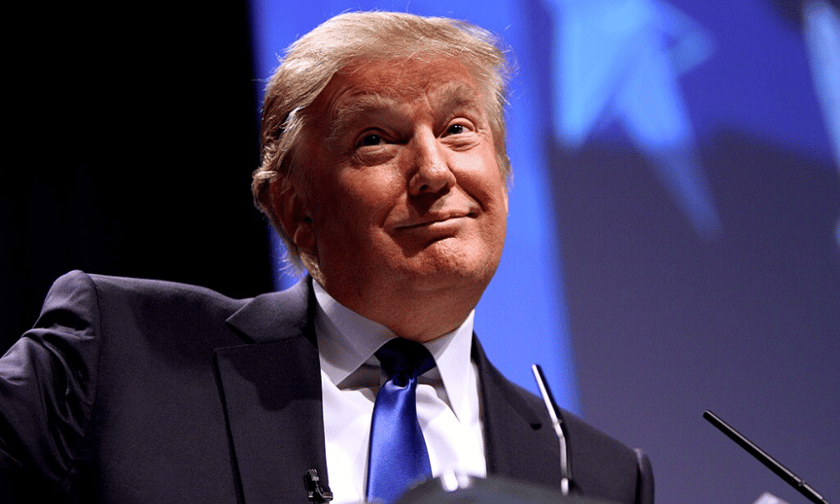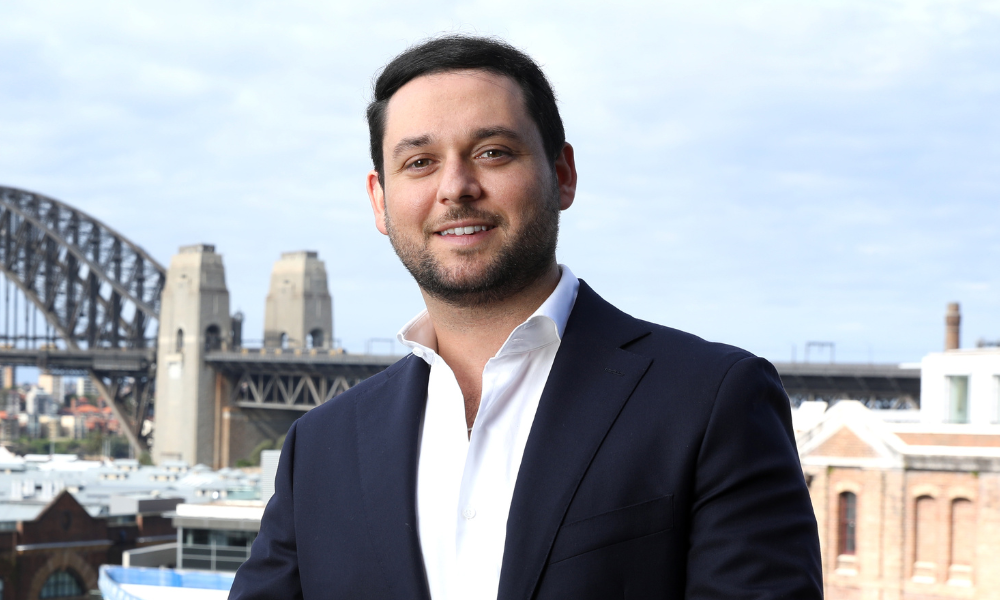

By
Image from: Gage Skidmore, CC BY-SA 3.0, via Wikimedia Commons
All eyes are on the United States this week as US President-elect Donald Trump begins his stint in the second Trump administration. The 47th US president will be inaugurated in Washington, D.C., the nation's capital city, on Monday, Jan. 20.
With time zone differences, that's very early Tuesday morning in Australia. But even on the other side of the planet, talk is swirling about Trump. Market participants are wondering how the president of the most powerful country on earth will impact Australia's economy, and more specifically the property markets.
Trump has previously said he will impose sweeping tariffs on products manufactured overseas in an effort to keep jobs Stateside. In the case of China, Trump said he would impose a 60% tariff on all things imported into the US from China, which could lower China's gross domestic product, making it harder for the Asian superpower to sell things abroad, and potentially lead to trade wars.
That could wreak havoc Down Under, as China is one of Australia's largest trading partners and source of imports. Australia would likely feel the after-effects. China might start charging more for goods. Likewise, the cost of American exports might rise. Coupled with the strong US dollar and Australia's weaker currency, inflationary pressures could persist.
All of these factors combined will be influencing the Reserve Bank of Australia's decision around the timing of its next rate cut. The RBA has previously said it is targeting an inflation rate between 2% and 3% before it will cut rates. While market analysts are hopeful for a February reduction in the official cash rate, higher-for-longer interest rates would undoubtedly have an impact on Australia's property markets and borrowers' access to capital.
But it's not all doom and gloom. With all the uncertainty, comes mixed opinions. In fact, some people are expecting Trump's deal-making skills will help drive global economic activity. Australian Broker asked a few key market players for their thoughts on how the Trump Administration part two will impact Australia.
Gold Coast-based managing director and broker at Investure
"Trump is a dealmaker. You have to look at what he wants, not as what he says or what he does. Look at what he actually wants. He wants America to be self-sufficient. I don't think he'll impose tariffs on China, because that would hurt the US too. For Australia, he could be really positive [for the economy], once we get past this fear. As a trade partner, he and the US could only be good for Australia."

Founder of Queensland-based mortgage brokerage firm Capta Financial (pictured right)
"Trump will have a big impact on the new year, particularly on tariffs. Australia exports to China. If China's economy doesn't do well, then Australia might increase its cash rates. [But] Trump is very volatile. There's a huge gap between what he says and what he does. If there are tariffs, that could impact China, which then could impact Australia."

Cofounder and chief executive officer at non-bank lender Bridgit (pictured right)
"Of course [Trump's presidency] will have an impact. Whether it will be positive or negative is something I don't have a crystal ball on. In terms of capital markets, it will be favorable. We will start to see a lot more venture capital investment globally. We will start to see more inflow and outflow of capital markets in a positive way. Ultimately, I think that will help fund more innovation in Australia. I think that will then have flow and impact on the real estate property market in a positive way."

Founder and broker at Finax Mortgages (pictured right)
"Although Trump is undoubtedly a controversial figure, it’s hard to deny his strengths as a dealmaker. With a solid business background, he excels in managing conflict and asserting leadership. His approach could lead to a more orderly world through diplomatic agreements, truce.
"One thing seems certain: the American economy and GDP are poised for growth, driven by advancements in AI technology and deregulation under the new government. This is expected to attract capital and talent from other countries, creating ripple effects that will be felt globally, including in Australia.
"As for the impact of Trump’s presidency on the Australian property market, it remains to be seen. While Trump has floated the idea of tariffs on Australian goods, this is uncertain due to the close ties between the two nations. If such tariffs were imposed, they could hurt the Australian economy. [But] tensions between China and the US are likely to persist, regardless of who holds office. However, with Elon Musk's pro-China stance, some speculate there could be notable differences between Trump’s current administration and his first term."

Melbourne-based director, head of sales and distribution at non-bank lender Brighten (pictured right)
"[I'm] not really worried. I think Australia is big enough to stand on its own and yes, it impacts us from what's going on in America. But, I'm not seeing any concerns on that side. And I've got no concerns for 2025, or something, because of Trump at all."
Sydney-based executive chairman and chief executive officer at Australian real estate firm Raine & Horne
“Donald Trump’s proposed 60% tariffs on China could drive strategic shifts. China’s closer ties with nations like Australia may lower product prices, influence trade, potentially drive up inflation and complicate rate cuts by the RBA."

Chief Commercial Officer at Heartland Bank Australia (pictured right)
"It's really about how Australians react to the news and the actions that happen in America. That is unpredictable. So from my perspective, we have to wait [and see]. The Australian economy is built on the metrics and the GDP, inflation and unemployment. The way in which we act, the way in which we perceive [our environment], the way we're working and the way we should be spending money, really impacts the way the economy proceeds. So it's very much up to the consumers in Australia to build their own views and adapt in a way they feel that is the most effective way for them. And that will define how our economy proceeds over the next six to 12 months."

Sydney-based co-founder and managing director at non-bank lender Finstreet (pictured right)
"[Trump's presidency] is definitely going to impact every country. The first two countries that will be [most] impacted will be China and Mexico. But of course, when it comes to policy-wise, Australia is very co-related with the US and also China. It's definitely going to have an impact on the Australian market. For [the] Australian property market, [future outcomes] will be more related to supply and demand, and the population growth, whether there will be a good military policy to help stabilize the market. The best thing for Australia is trading [its] resources and China is still the country that is buying most of the resources from Australia."
Sydney-based chief executive officer of OnDeck, a non-bank lender for small businesses
"I think overall small businesses in Australia would see [Trump in office] as a positive. They're more conservative-leaning in global politics, so they're going to be naturally more conservative voters. And I think small businesses in Australia have really struggled with the increased costs: the cost of energy, the cost of employing people, the additional burdens put on small businesses to actually run them. [The] increased compliance, increased regulatory burden on small businesses is really tough. So they're going to naturally be on the more conservative side."
